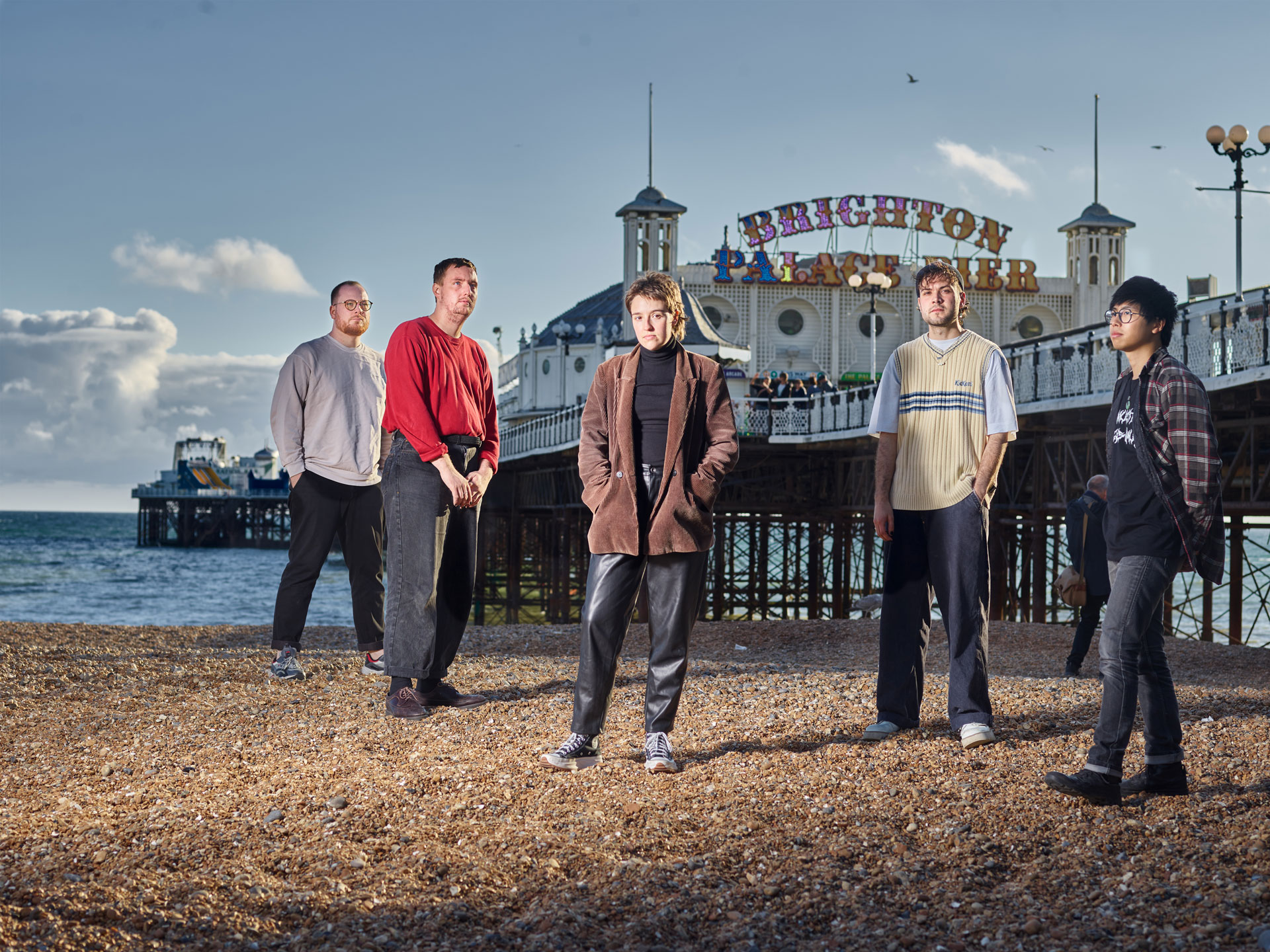
Learn: Top 5 Tips for Editorial and Band Promo Photography
Published 31 October 2025 by MPB
Portrait and fashion photographer Ki Price has worked with some of the world’s most iconic celebrities, including Vivienne Westwood, Lewis Hamilton and Amy Winehouse. We joined Ki behind the scenes as he shot a series of promo shots for the band Flirting. In this article and video, Ki covers five ways to improve your editorial and promo photography—for everything from band photoshoots to group portraits. Let’s hear from Ki Price.
The shoot we'll be doing will be in a normal style editorial shoot. We’ll be providing the band with some promo material for their upcoming tour.
1. Use lighting and natural light
Brighton's got such amazing light. Usually, you can piggyback off the sun, which gives a really nice backlight. Probably one of my favourite bits of kit is the Broncolor Para. With 1200 watts of light, it's going to overthrow the sun. As you move, as you pull the light out, you get a really soft light. As you push the light in, you get a really nice hard fashion light. For me, that's a great bit of kit—makes my life a lot easier.
The whole thing about stylized lighting is finding a light that's powerful enough for you. I would have struggled if I turned up here with a 400-watt light. I would have changed my composition and my shots. Because I’ve turned up with a 1200-watt light and a big enough modifier, it gives a good, punchy light. I can pretty much do what I want to do.

Ki Price | ‘Flirting’ | Phase One 645DF+ | Phase One IQ150 | Schneider Kreuznach LS 80mm f/2.8 | 80mm | f/5.6 | 1/400 | ISO 100
2. Choose the right camera gear
Let’s have a look at the cameras we’ve got. This is my old Phase One 645DF+—with the Phase One IQ1 50 digital back and Schneider Kreuznach 80mm f/2.8 LS—which is what I’m going to be using on the shoot today. It's got leaf shutters in the lenses, that can shoot up to around 1/1600. I don’t get any shutter lag coming through. And also, I can really pick into the resolution. And it tethers really nice and fast. It works really well with programs like Capture One.
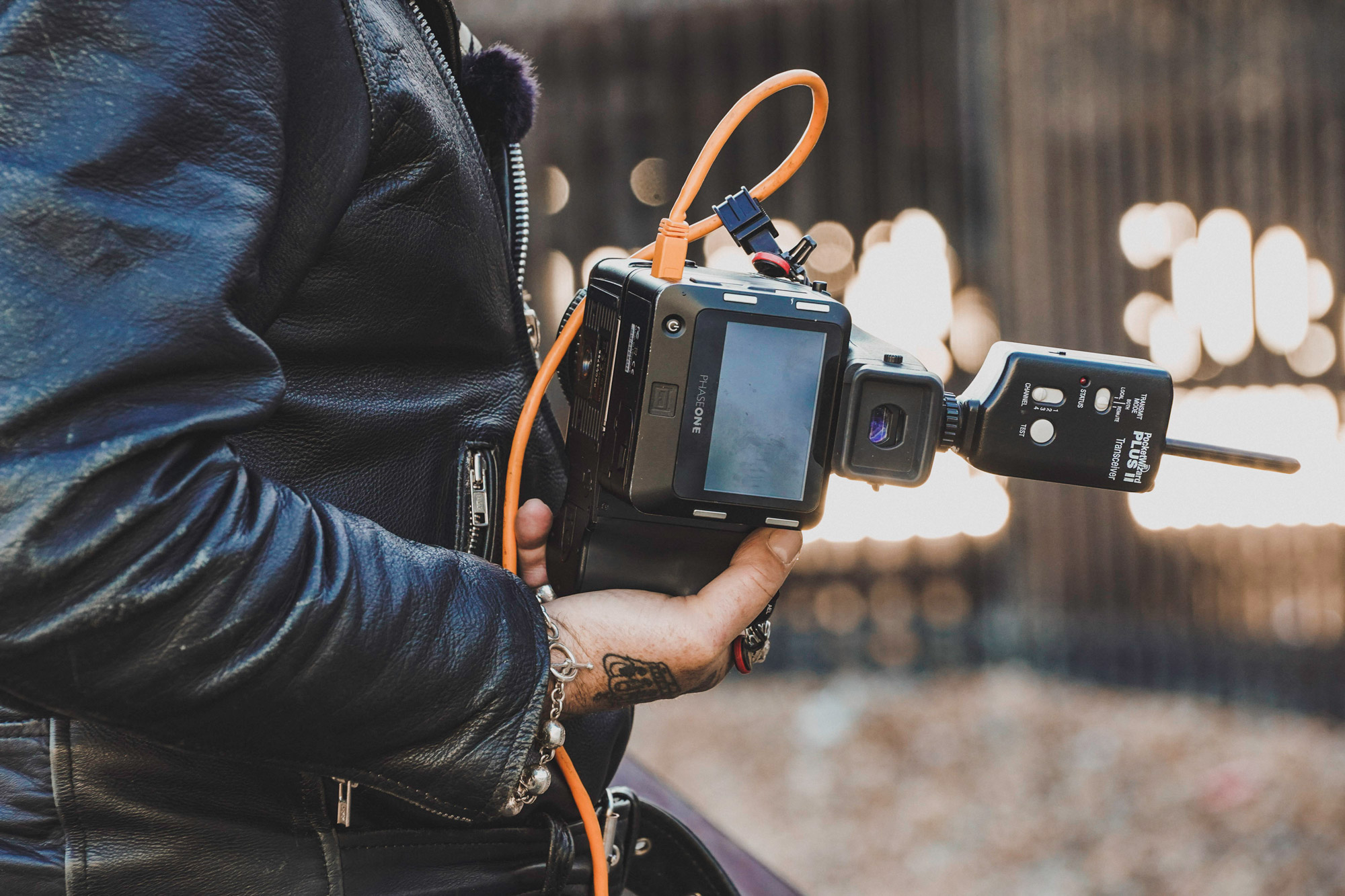
It's a really versatile piece of kit, but it doesn’t do everything. I work a lot with Vivienne Westwood. I work with her on her activism side, and we’ve just been shooting a show in Paris. The Phase One there is too slow, too clunky. It works very well tethered. Untethered, I don’t really like it very much.
I’ve also got a Nikon D850, which is nice. It’s like 45 megapixels, gives me nice high-res files. I’ve got versatility, and I can shoot in really low light. So the Phase One doesn’t do everything, and the Nikon doesn’t do everything. So having two different camera systems—it works for me.
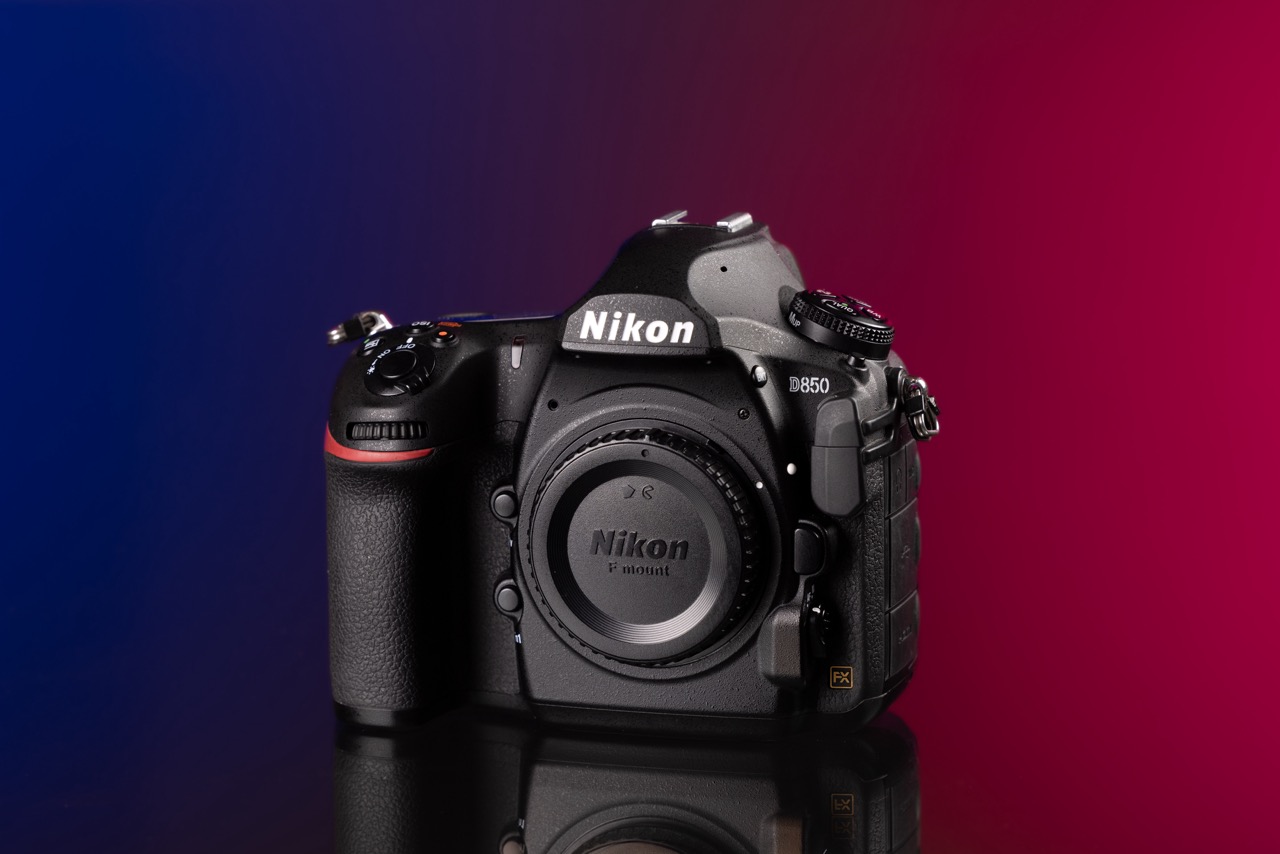
Used Nikon D850
3. Shoot tethered
And then we’ve got a laptop. We're going to shoot everything tethered, so they can see the whole shoot. And it's nice because you always feel like your subjects that you're shooting, they get excited to see the pictures on the screen.
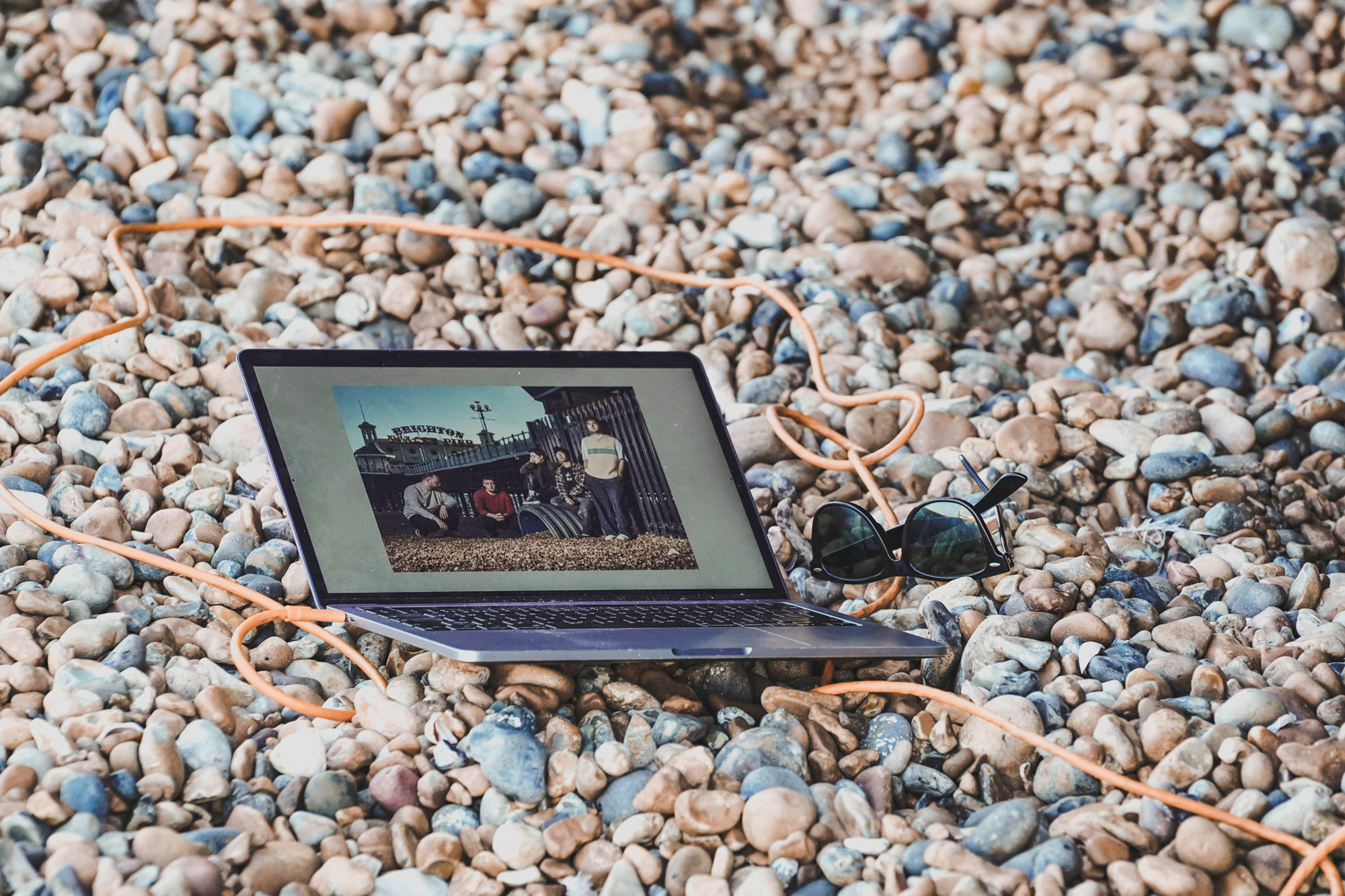
Tethering also allows me to see what's going on. I can make adjustments as and when I need to—without trying to wing it in Photoshop afterwards.
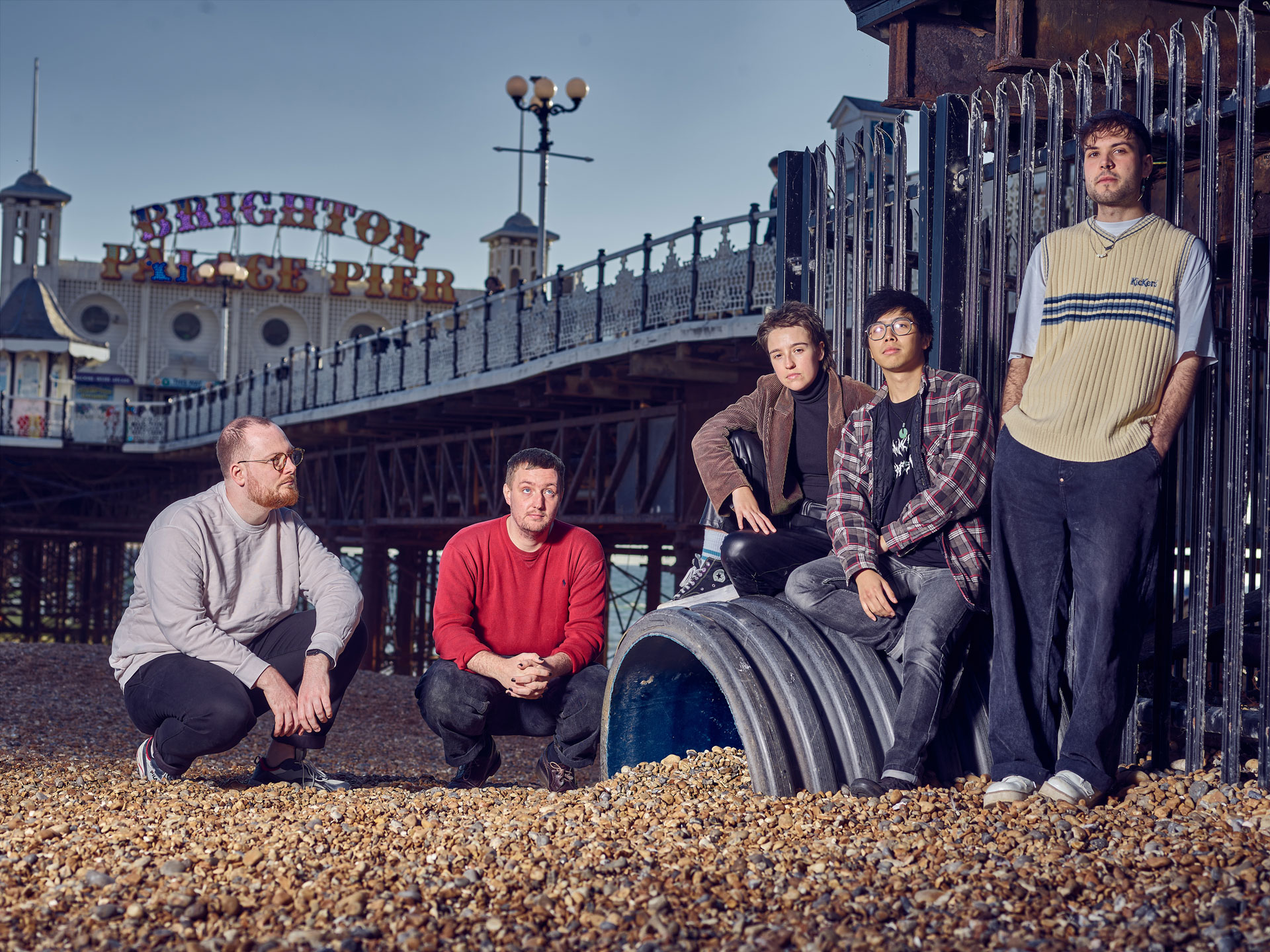
Ki Price | ‘Flirting’ | Phase One 645DF+ | Phase One IQ1 50 | Schneider Kreuznach LS 80mm f/2.8 | 80mm | f/5.6 | 1/400 | ISO 100
4. Use props or interact with the location
One of the hardest shots is to have five people in a group shot, and not make it look like a wedding shot. Now, the band are much happier and much more relaxed because they have some props that they can hold on to or sit on.
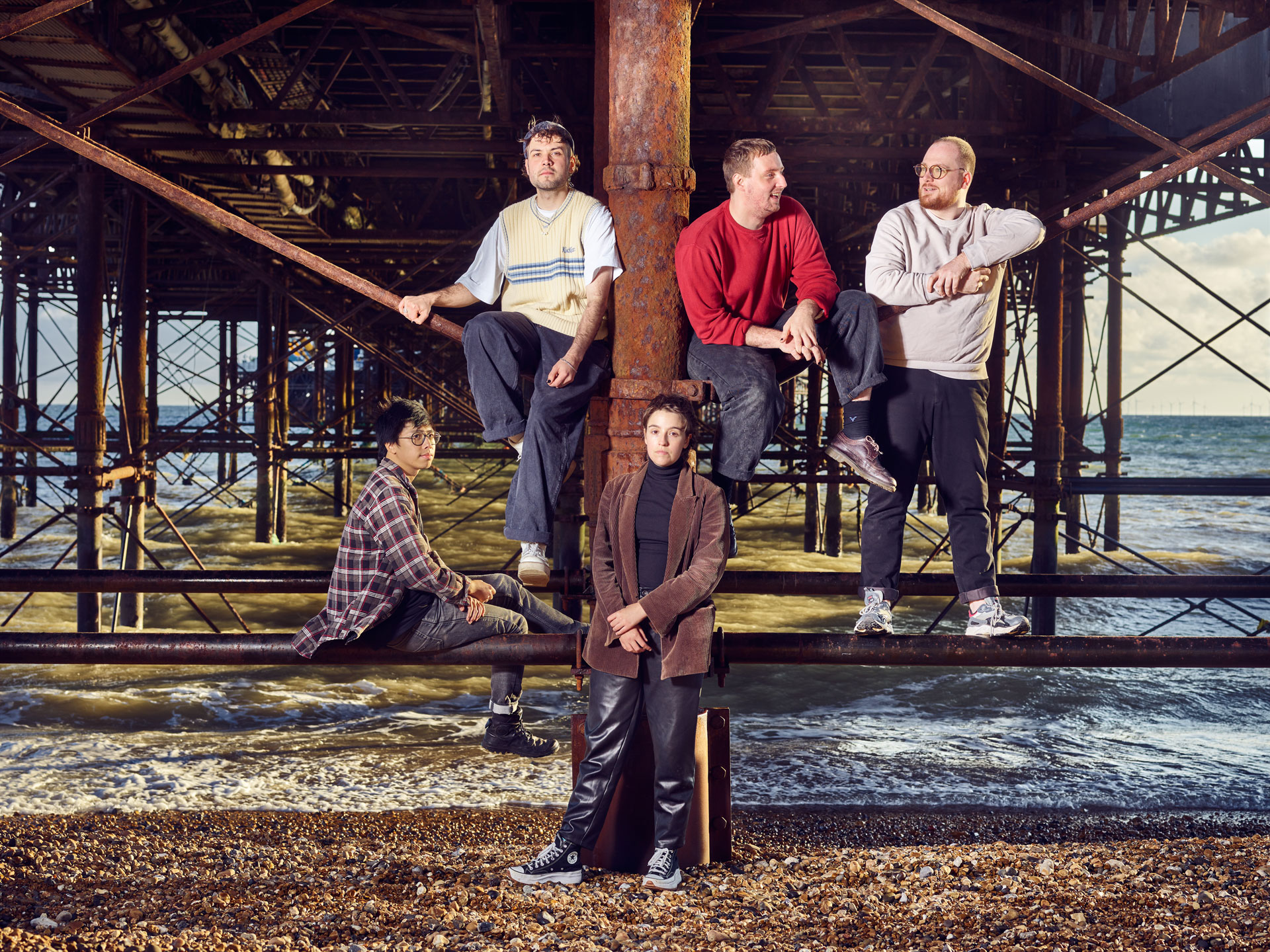
Ki Price | ‘Flirting’ | Phase One 645DF+ | Phase One IQ150 | Schneider Kreuznach LS 80mm f/2.8 | 80mm | f/8 | 1/200 | ISO 100
5. Work with the weather
We've come to Brighton and we didn’t know what the elements were going to be like. When you're shooting on location like this, and you're shooting somewhere like Brighton—which is known for its sort of storminess and atmosphere—you never quite know what you're gonna get. So obviously, we’ve been really blessed with the lightness going on, and we’ve had some clouds in there as well, which just gives some depth to the image.
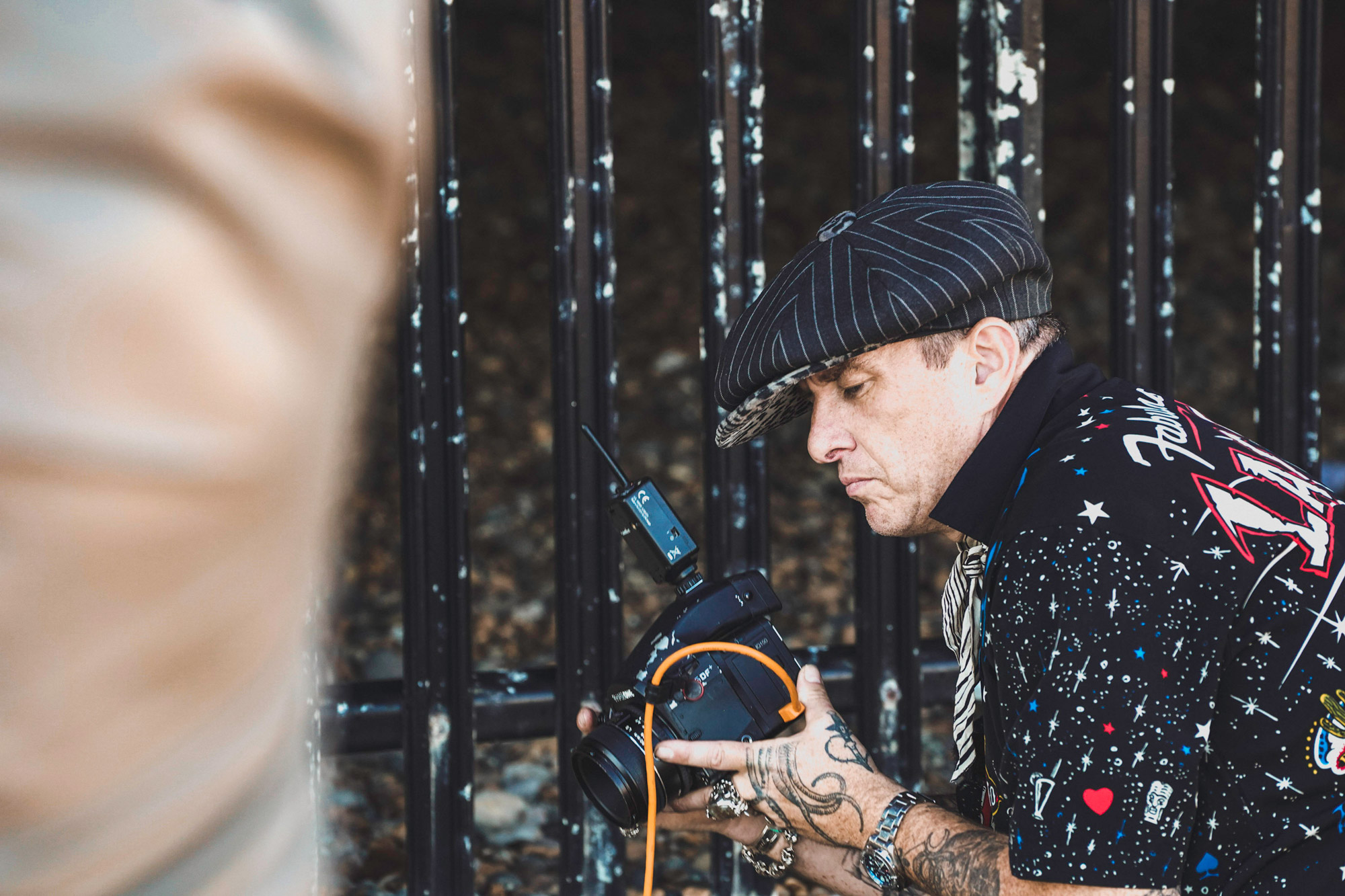
Looking for more music photography content?
This article is part of the MPB Guide to Concert and Music Photography, our comprehensive look at how to get started in music photography, with camera recommendations, tips, and interviews with experts.
Read even more tips and techniques on the MPB content hub.
You can sell or trade your camera kit to MPB. Get a free instant quote, get free insured shipping to MPB and get paid within days.